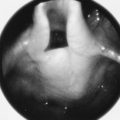chapter 17 Approaching the Adolescent
Interviewing adolescents calls for a different approach from that used for younger children and their parents. To begin taking responsibility for their own health, adolescents need to meet privately with their doctor (without the presence of their parents or caregivers) to discuss personal health issues. This is an important sign of respect for the adolescent’s individuality and for the confidentiality of the doctor-patient relationship. (See Key Point, page 260.)
Teen Health
Mental illness
Youth should be screened at each visit with routine mental health questions. This can include a brief discussion about the importance of seeking help if symptoms develop, particularly in those who have a family history of mental illness. (See Key Point, page 262, for screening questions.)
Sexual health
Despite plenty of current discussion of sexual health, many youth still lack clear and concise information on which to base their decision making. Many seek information from friends, at school, or from the Internet. Youth may be diffident about approaching their parents and concerned with how they will react. They may also worry that if they ask their doctor, their parents will find out. Almost all youth will be thinking about this issue, and many are already engaged in sexual activity without having accurate health information. Physicians are a trusted source of such information, and every visit provides the opportunity to ask the key questions and provide facts. (See Key Point, page 262, for screening questions.)
Accidents
Accidents are the leading cause of death in adolescents. Most are caused by motor vehicle collisions. Many of these are preventable by the responsible use of motor vehicles (following speed limits, not driving when impaired); safety measures (seat belts, not using cell phones or texting while driving); and understanding the risks of substance use prior to or while driving. Increased risk of motor vehicle accidents has also been documented in adolescents with attention deficit/hyperactivity disorder (ADHD) and teens with insufficient sleep and fatigue, a common problem among teenagers. (See Key Point, page 261, for screening questions.)
Starting the Interview
Drugs
Interview with Parents
When meeting on his own with you, John is sullen and slightly irritated. He tells you there is nothing wrong and says that his parents “worry too much.” He denies any problems with his mood. You go through some screening questions. He reports that he does drink and uses marijuana “sometimes.” You ask him the CRAFFT substance use screening questions (see Box 17–1), and he scores a 3.
BOX 17–1 Crafft Substance Use Screen (Copyright 2009)
(From Knight JR, Sherritt L, Shrier LA, et al: Validity of the CRAFFT substance abuse screening tests among adolescent clinic patients. Arch Pediatr Adolesc Med 156:607–614, 2002.)
(Answering “Yes” to two or more questions below indicates a substance-related problem.)
Do you ever use alcohol or drugs to RELAX, to feel better about yourself, or to “fit in”?
Do you ever use alcohol or drugs while you are ALONE?
Do you ever FORGET things you did while using alcohol or drugs?
Do your family or FRIENDS ever tell you that you should cut down on your drinking or drug use?
Have you ever gotten into TROUBLE while you were using alcohol or drugs?
Ford C.A., Coleman W.L. Adolescent development and behavior: implications for the primary care physician. In: Levine M., Carey M., Crocker A., editors. Developmental Behavioral Pediatrics. 3rd ed. Philadelphia: WB Saunders; 1999:69-79.
King R.A. Adolescence. In: Martin A., Volkmar F.R., editors. Lewis’ child and adolescent psychiatry. A comprehensive textbook. 4th ed. Philadelphia: Lippincott; 2007:279-291.
National Center for Chronic Disease Prevention and Health Promotion. Information on adolescent health and health behaviors. http://www.cdc.gov/HealthyYouth/AdolescentHealth/index.htm.
National Institute of Mental Health. Information on child and adolescent mental illnesses. http://www.nimh.nih.gov/health/topics/child-and-adolescent-mental-health/index.shtml.
Neinstein L.S., Gordon C., Katzman D., et al. Adolescent health care: A practical guide, 5th ed. Philadelphia: Lippincott, 2008.







